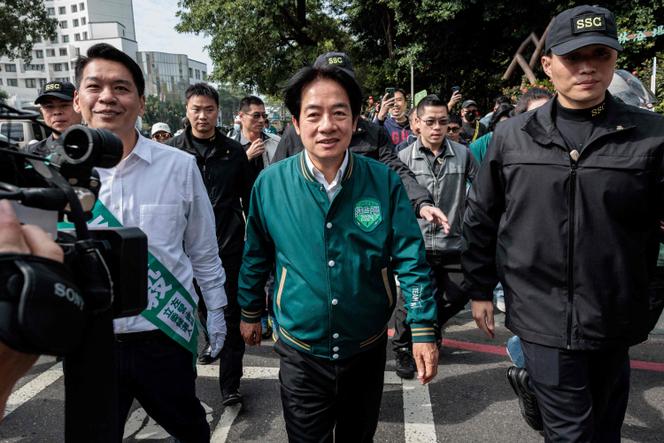


Some comments stick with their speaker forever. For Lai Ching-te, it's the statement he made before the Taiwanese parliament as prime minister, in 2017: "I am a pragmatic worker for Taiwanese independence." Far from being a slip of the tongue, they reflect his thoughts, and he has always stood by them: "I will never change this stance, no matter what office I hold."
Elected president of Taiwan on Saturday, January 13, with 40.1% of the votes in a single-round ballot, Lai will lead the country for the next four years. China President Xi Jinping aims to reunify the island with mainland China, a "historic mission" that should cease to be passed down "from generation to generation," through peaceful means if possible, and through military force if necessary. On Friday, on the eve of the vote, the People's Liberation Army warned that it would crush "any form of attempted secession of Taiwan whatsoever."
In his victory speech, on Saturday, Lai said he would maintain peace and stability, but pledged to defend the island from Chinese belligerence: "We are determined to safeguard Taiwan from continuing threats and intimidation from China."
Following one of the most sensitive elections of 2024, this seasoned politician's assumption of power, who throughout his career has consistently advocated for a stronger assertion of Taiwanese identity, is certain to provoke a strong reaction from Beijing. According to Ivy Kwek, a researcher in Taiwan for the International Crisis Group, "we can expect that Beijing will continue to put pressure on Taiwan after the election, especially if a DPP parliament is voted into power."
In an undisguised threat, in December, China revoked preferential customs duties on petrochemical products granted to Taiwan under a 2010 cross-strait agreement. It could hit Taiwanese exports much harder, 35% of which are absorbed by the mainland. Incursions by Chinese fighters beyond the median line dividing the strait are already on the rise each month.
For the 64-year-old, this victory is the culmination of a long political career. During one of his most recent rallies, held in front of the presidential palace on Thursday, he remained assertive, calm and had his usual perfectly parted hair leaving his large forehead exposed. However, this time, his eyes were misty from finally being so close to be elected.
Born in 1959 in a coastal town north of Taipei, 10 years after Chiang Kai-shek was defeated on the mainland by Mao Zedong's troops, Lai was not from a
background that might have foreseen a political future for him: He was only a few months old when his father died of carbon monoxide poisoning in the coal mine where he worked. His mother took on various odd jobs to raise her six children.
You have 75% of this article left to read. The rest is for subscribers only.
